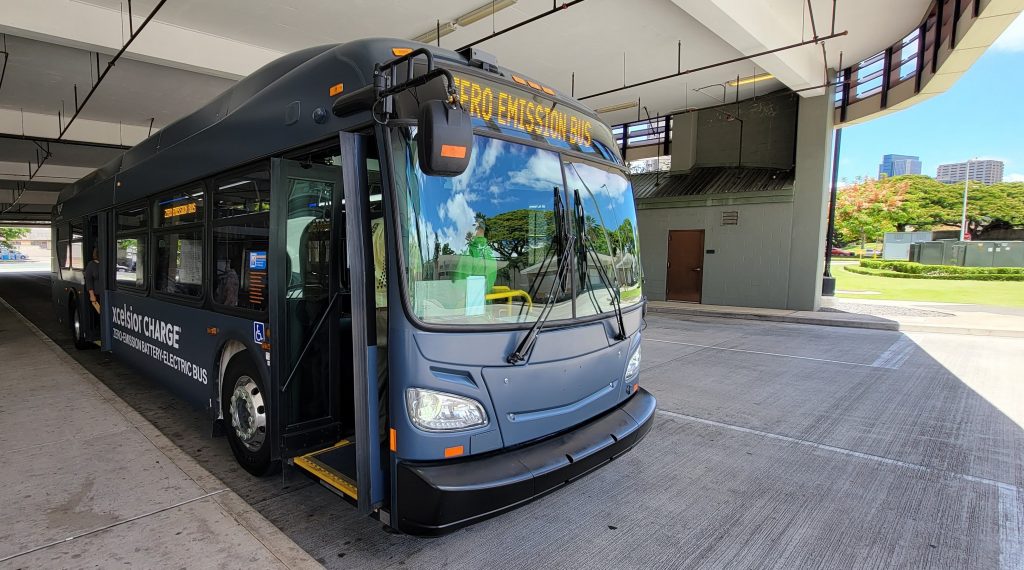$4.9M secured from the EPA’s Clean School Bus Program for Hawaiʻi

The Biden-Harris Administration awarded nearly $5 million from the US Environmental Protection Agency’s Clean School Bus Program to Hawaiʻi.
The grant will help the Hawaiʻi Department of Education purchase 25 clean school buses to help accelerate the transition to zero emissions vehicles.
“President Biden’s historic Bipartisan Infrastructure Law is accelerating our nation’s transition to electric and low-emission school buses while ensuring a brighter, healthier future for our children,” said EPA Administrator Michael S. Regan. “As many as 25 million children rely on the bus to get to school each day. Thanks to the Biden-Harris Administration, we are making an unprecedented investment in our children’s health, especially those in communities overburdened by air pollution. This is just the beginning of our work to build a healthier future, reduce climate pollution, and ensure the clean, breathable air that all our children deserve.”
“These buses will help more kids in Hawai‘i safely get to school without breathing harmful pollutants, make our roads cleaner and quieter, and help us transition to a clean economy,” said Senator Brian Schatz.
“This award marks yet another way that the Bipartisan Infrastructure Law continues to invest in Hawai‘i,” said US Representative Ed Case. “These funds are an important next step for our schools and transportation network in the continuing effort to transition to a clean energy future.”25 buses purchased 20 will be zero emissions electric school buses. Today’s announcement includes funding for buses and infrastructure for districts in cities across the state.
In May, EPA announced the availability of $500 million for its Clean School Bus Program. Given overwhelming demand from school districts across the country, including in low-income communities, Tribal nations, and territories, EPA nearly doubled the amount of funding that will be awarded to $965 million. The rebate application period closed in August with an outstanding response from school districts seeking to purchase electric and low-emission school buses across the country.
At this time, the agency has selected 389 applications totaling $913 million to support the purchase of 2,463 buses, 95% of which will be electric. EPA will distribute awards to school districts in all 50 states, Washington D.C., along with several federally recognized Tribes and US territories.
School districts identified as priority areas serving low-income, rural, and, or Tribal students make up 99% of the projects that were selected. More applications are under review, and the agency plans to select more to reach the full $965 million in the coming weeks.
Those school districts who received an award can now proceed with purchasing new buses and eligible infrastructure. Selectees will need to submit Payment Request Forms with purchase orders demonstrating they have ordered new buses and eligible infrastructure. EPA is also partnering with the US Department of Energy and Department of Transportation to provide school districts with robust technical assistance to ensure effective implementation.
These awards are the first $1 billion of a five-year, $5 billion program created by President Biden’s Bipartisan Infrastructure Law. EPA is also designing the next rounds of program funding to launch in the coming months, which will include an ambitious grant competition. Through future rounds of funding, EPA will make available another $1 billion for clean school buses in Fiscal Year 2023. EPA encourages school districts not selected in the first round of rebates – and those that did not apply this funding cycle – to participate in future rounds.
Program representatives say the Clean School Bus Program will reduce greenhouse gas emissions, save money for school districts and produce cleaner air. The program will also save school districts money as they upgrade school bus fleets, replacing older, gas powered buses with new school buses, while freeing up needed resources for schools.







